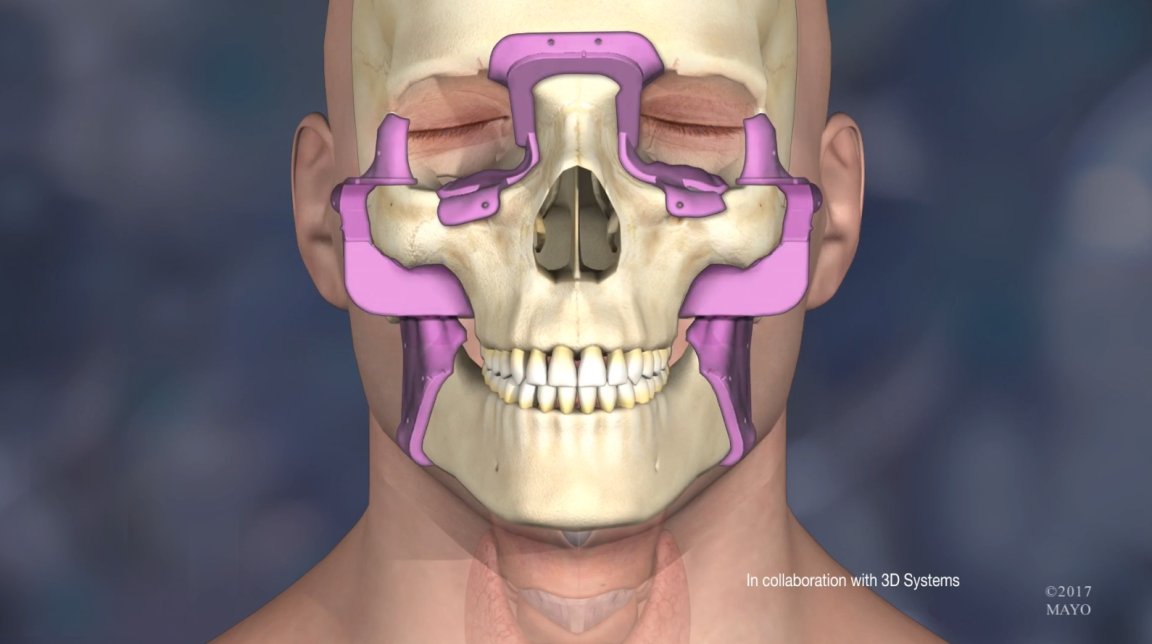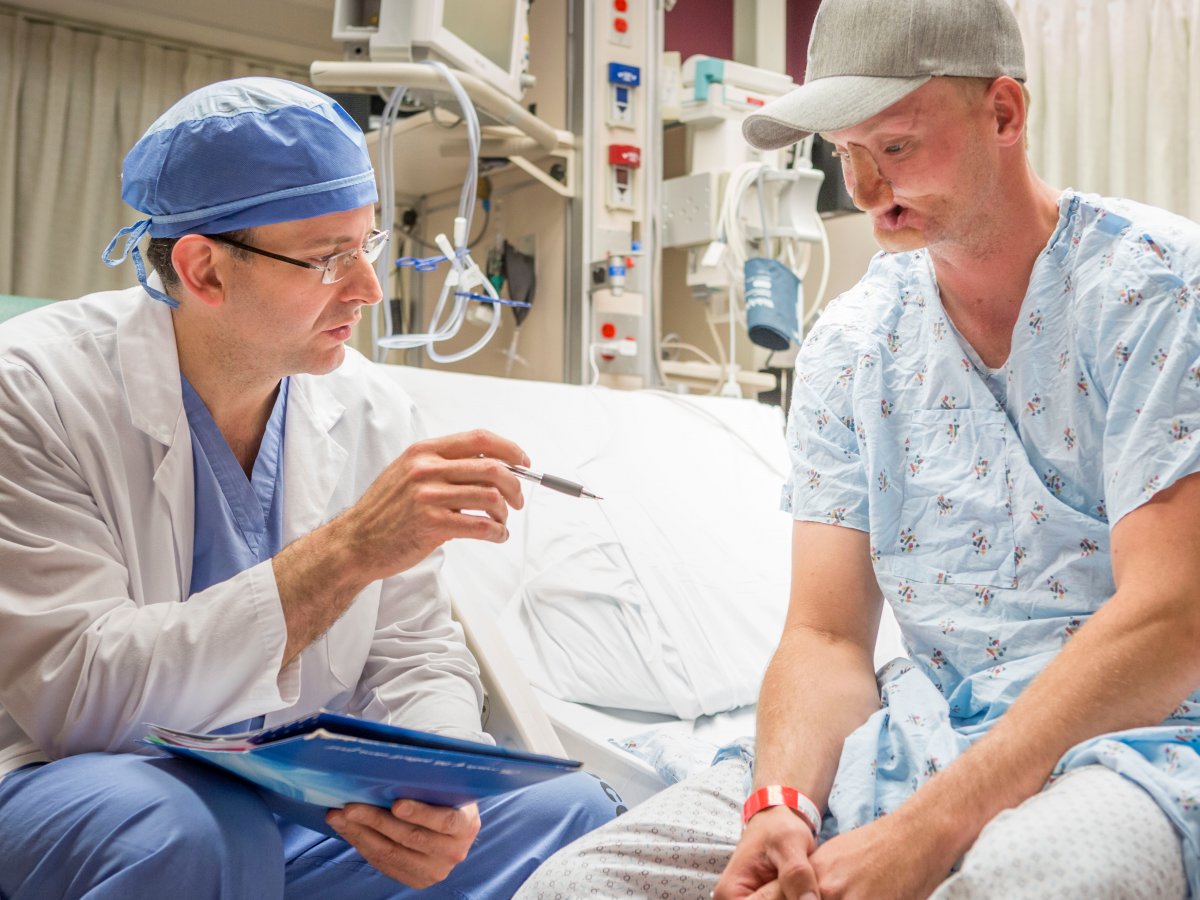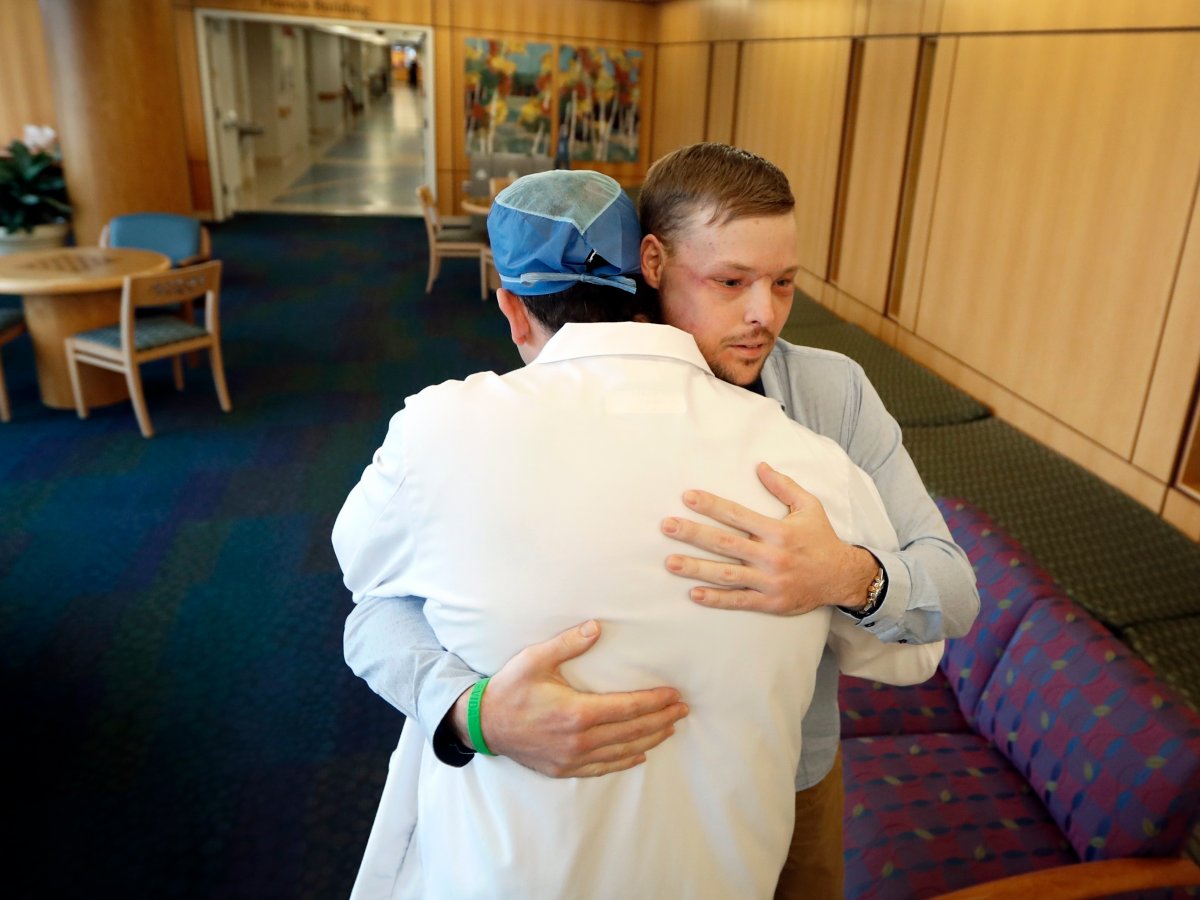
Andy’s Story
In 2006, a 21-year old Andy Sandness unsuccessfully attempted suicide. He had aimed a bullet at his chin, which ended up destroying the lower half of his face. He was rushed to Mayo Clinic in Rochester, Minnesota where doctors finally stabilized him, but nothing could be done about his missing jaw, teeth, and nose.

Sandness went back to his home and job in Wyoming, but six years later, the Mayo Clinic delivered some hopeful news. In 2012, the hospital proposed the idea of a face transplant, a procedure with many risks and possible complications following the final surgery. But, Sandness accepted the dangers, staying hopeful, and agreed to the operation.
“When you look like I looked and you function like I functioned, every little bit of hope that you have, you just jump on it,” Sandness said. “This was the surgery that was going to take me back to normal.”

Preparations for Andy’s facial reconstruction surgery took three years, while doctors trained for the procedure over 50 Saturdays.
In 2016, he was added to the organ donor list. Just five months later, he received notice of a donor whose wife consented to the face transplant.
The procedure stretched across 56 hours and featured 60 different staff members. The doctors were able to successfully transplant Sandness’ nose, cheeks, mouth, jaw, lips, teeth, and chin.
Saving Lives
Since the operation, Andy has noticed that people haven’t been staring at him nearly as much as before he underwent reconstructive surgery. He’s also regained his sense of smell, taste, and his ability to breathe efficiently.

Andy’s story might involve a fairly uncommon transplant surgery, but his operation is one of many transplant procedures that are changing, and in some cases saving, lives.
Last month, researchers were able to use retinal transplants to partially restore sight in a group of mice. This success could lead to clinical trials in humans within the near future. Last year, doctors performed four uterus transplants, allowing women to choose whether or not they want children when they previously had no choice. In late 2016, doctors at the Leeds Teaching Hospital NHS Trust announced that they’re beginning to offer hand transplants — the first hospital in the world to do so.
With further advances in transplant surgery, doctors will be able to significantly improve the quality of life in patients who thought they’d never experience a normal life.